Former Miss America Mallory Hagan wins primary, prepares to challenge Mike Rogers

Former Miss America Mallory Hagan of Opelika, Ala. can add another crowning moment of victory to her personal history — she won the Democratic nomination in Alabama’s 3rd U.S. District on Tuesday. Hagan defeated self-proclaimed clinical psychologist Adia McCellan Winfrey 66-34 percent with 99 percent of precincts reporting. Hagan will go on to face 16-year incumbent Republican U.S. Rep. Mike Rogers in the fall. “One thing is clear as I evaluate the results tonight: the Democratic party is united in the 3rd District of Alabama. And together we sent a message to Mike Rogers that the status quo of the past 15 years is coming to an end in November. You must deliver to represent us,” Hagan said following her victory. She continued, “Tonight — united — we begin a fight for our seat in Congress so that Alabama can become the state that we deserve. An Alabama with a powerful educational system, a top tier healthcare system and an economy that provides rich opportunity for all of us – regardless of gender or race.” Rogers did not face a primary challenger. He and Hagan will face-off on Nov. 6.
Democrats hope for big push from 8-state primary night
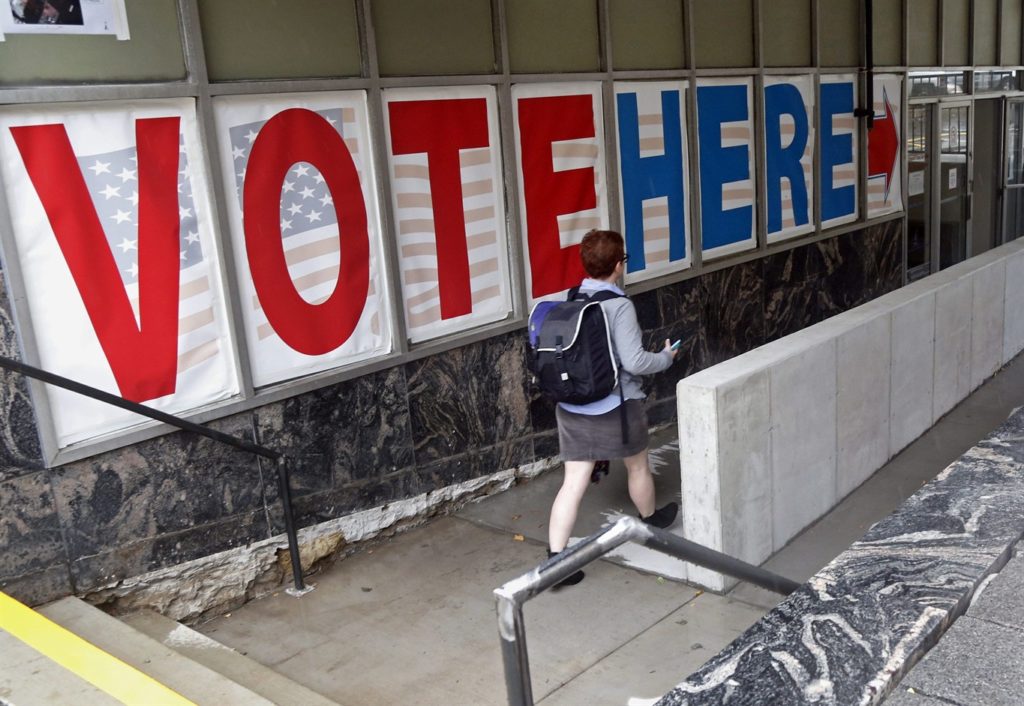
Holding hopes of a “blue wave” in November, Democrats fought to shape the political battlefield in primaries across eight states Tuesday, none more important than California and New Jersey where control of Congress may well be decided this fall. It was a big night for women. And neither party immediately appeared to suffer major setbacks. Yet the winners and losers in California’s most competitive races could take days to sort out given the state’s unique election laws. Republicans were concerned but breathing a bit easier as results came in in the race to succeed California’s term-limited Democratic governor, Jerry Brown. Lt. Gov. Gavin Newsom won the top spot and the right to run in the general election this fall, while the competition for the second spot featured Democratic former Los Angeles Mayor Antonio Villaraigosa and Republican business executive John Cox. Cox seemed headed for that second spot, avoiding a situation in which the Republicans would have no one at the top of the ticket to drive turnout for congressional and other races. That could have had a profound impact on several suburban House races, where Democrats see a prime opportunity to steal some of the 23 seats needed to retake the House. Roughly half of that total could come from districts in California and New Jersey. Meanwhile, Democratic Sen. Dianne Feinstein seized her party’s nomination for another term, as widely expected. It was still unclear whether a Republican would earn enough votes to oppose her on California’s November ballot. Three thousand miles away from California, former federal prosecutor and Navy pilot Mikie Sherrill bested a field of party rivals in the race to replace retiring Republican Rep. Rodney Frelinghuysen. The favorite of Washington Democrats will take on GOP Assemblyman Jay Webber in one of several New Jersey races Democrats view as possible pickups. Much of the day’s drama focused on women, who fought to make history in some cases and to avoid disaster in others. In Alabama, four-term Republican Rep. Martha Roby was forced into a runoff election next month after failing to win 50 percent of her party’s vote. She will face former Democratic Rep. Bobby Bright in Alabama’s conservative 2nd district — where Trump loyalty has been a central issue. Roby was the first member of Congress to withdraw her endorsement of the Republican president in 2016 after he was caught on video bragging about grabbing women’s genitals. In New Mexico, Democratic Rep. Michelle Lujan Grisham won her party’s nomination in the race to succeed outgoing Republican Gov. Susana Martinez. If Grisham wins, she’d be the state’s second Latino state executive. Alabama Gov. Kay Ivey fended off three GOP challengers, while South Dakota Rep. Kristi Noem became the first female nominee for governor in her state. In Iowa, 28-year-old Democratic state Rep. Abby Finkenauer was trying to become the youngest woman to serve in Congress. And in New Mexico, former state Democratic Party Chairwoman Debra Haaland, a tribal member of Laguna Pueblo, won her primary and could become the first Native American woman in Congress if she wins this fall. Haaland said in her primary victory statement: “Donald Trump and the billionaire class should consider this victory a warning shot: the blue wave is coming.” In Mississippi, Republican Sen. Roger Wicker won his primary contest as did New Jersey Sen. Bob Menendez, a Democrat who faced federal bribery charges last year. The jury deadlocked, but Republicans hope to use Menendez’s legal troubles to tar other Democrats like Sherrill across the state. Republican businessman Bob Hugin claimed the Republican nomination Tuesday and will face Menendez this fall. Much of Tuesday’s focus was on California. Recognizing the high stakes, Trump sought to energize his supporters in a series of tweets praising his preferred California Republican candidates earlier in the day. “In High Tax, High Crime California, be sure to get out and vote for Republican John Cox for Governor. He will make a BIG difference!” Trump tweeted. Yet frightening scenarios existed for both parties. Because of California’s unusual primary system, all candidates appear on a single primary ballot, with the top two vote-getters regardless of party advancing to the November election. That allows the possibility of two candidates qualifying from the same party — and neither from the other. National Democrats spent more than $7 million trying to curb and repair the damage inflicted by Democrats attacking each other in districts opened by retiring Republican Reps. Ed Royce and Darrell Issa, and the district where Republican Dana Rohrabacher is facing challenges from the left and the right. Trump will not be on the ballot this year. But he was on the minds of many voters. Francine Karuntzos, a 57-year-old retiree from Huntington Beach, California, said she has deep concerns about the Republican president — particularly his recent declaration that he could pardon himself. She said she isn’t a member of a political party, but she voted Democratic on Tuesday. “I’m really, really worried about our Constitution being ruined by this presidency,” Karuntzos said after casting her ballot at a local community center. Across the country in Montclair, New Jersey, Lynnette Joy Baskinger, a psychotherapist, said she’s fed up with the GOP. “I still consider myself an independent, but I just won’t vote Republican because of what’s going on,” she said. It was a different story in Mississippi, where 66-year-old Gladys Cruz wasn’t sure which Republican she would support in the state’s Senate primary, but she wants whoever wins to firmly support Trump. The president “touches my heart,” she said. A key Senate race took shape in the heart of Trump country as well. Montana Republicans were picking a candidate to take on Democratic Sen. Jon Tester, one of the most vulnerable senators in the nation. The GOP struggled to recruit top-tier candidates, leaving the most likely nominees as state Auditor Matt Rosendale or retired Judge Russ Fagg. Democrats have aimed their most aggressive attacks at Rosendale, seizing on his background in Maryland and questions about his experience as a
Martha Roby forced into runoff by primary challenger, former Rep. Bobby Bright
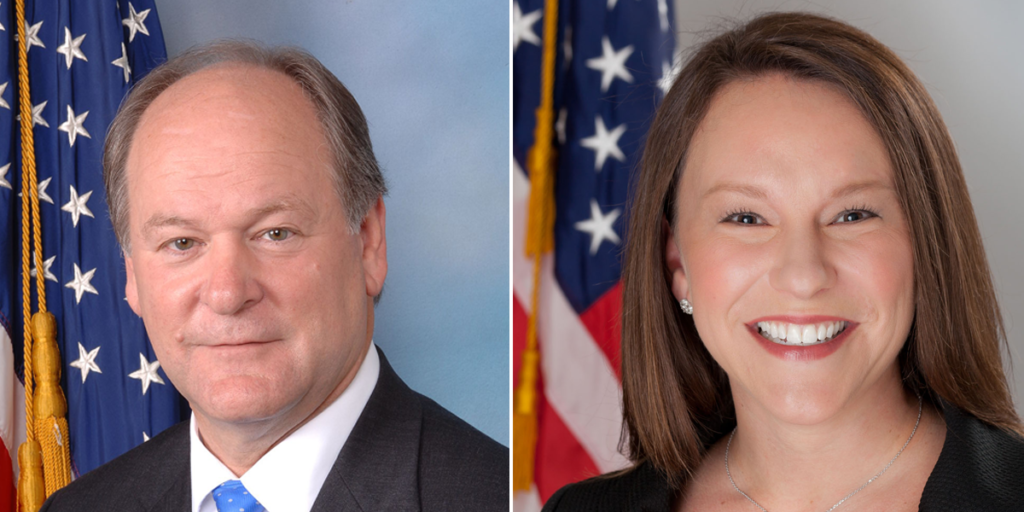
Tuesday night must’ve felt like waking up from a bad dream for Alabama 2nd District U.S. Rep. Martha Roby as she found herself forced into a run-off against former U.S. Rep. Bobby Bright… the man whom she defeated to go to Congress for the first time… back in 2010. With 59 percent of the precincts reporting, the Associated Press declared Roby in a runoff with Bright, with her 39 percent to his 29 percent. The two will now go head-to-head once again in the July 17 runoff election having edged out State Rep. Barry Moore Tommy Amason, and Rich Hobson in Tuesday’s Republican primary. A political price Roby found herself lambasted by the crowded field of challengers due her 2016 criticism of President Donald Trump after recordings of him making lewd comments were released during his campaign for president. Roby said then that Trump’s behavior “makes him unacceptable as a candidate for president” and suggested he step aside to let another Republican lead the presidential ticket. The runoff is the political price Roby has to pay for being one of the few Republicans in the Deep South state to speak out against the president. Roby’s optimistic Despite being forced into a runoff, Roby remains optimistic. “I am grateful for the strong support my campaign has received, and I look forward to continuing to discuss my proven record as a conservative Republican for the next six weeks. We have run this race before,” said Roby. “The people who live and work in Alabama’s Second District rejected the big government, liberal policies that came as a result of the Barack Obama and Nancy Pelosi era when they voted to replace Democrat Bobby Bright with a Republican. I am confident they will do so again.” Roby continued, “Our unified Republican government has accomplished a lot over the last year and a half, and I believe I am best positioned to deliver meaningful results for our military, veterans, farmers, and hardworking Alabamians. I’m eager to continue my work on behalf of the people I represent, and I humbly ask for their continued support on July 17.” History of AL-02 Alabama’s 2nd Congressional District includes just over half of the state capital, Montgomery, as well as most of the Wiregrass Region in the southeastern part of the state. In 2008, eight-time winner Republican Rep. Terry Everett announced his retirement, creating a vacancy for the seat. Bright ran for the seat as a Democrat and defeated Republican-candidate for State Rep. Jay Love. Bright, the former mayor of Montgomery, Ala., served only one term in the U.S. House of Representatives, from 2009-2011, before Roby ran on the Republican ticket and unseated him in the 2010 midterm elections.
Incumbent to face Tuscaloosa mayor in Alabama governor race
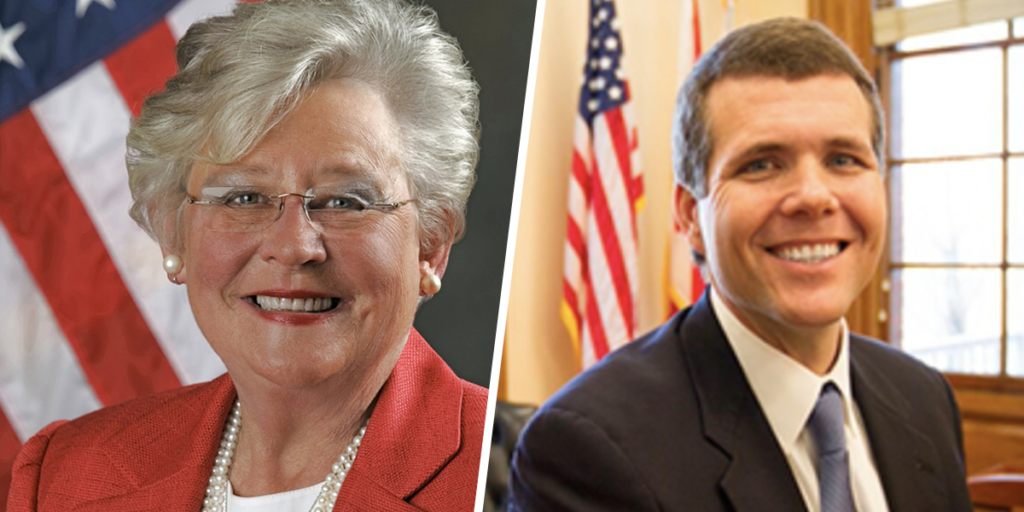
Gov. Kay Ivey clinched the Republican nomination in Alabama’s gubernatorial primary race Tuesday, and now she seeks to win the office outright after her appointment 14 months ago, when predecessor Robert Bentley resigned in the fallout of a sex-tinged scandal. She will face Tuscaloosa Mayor Walt Maddox, who won the Democratic nomination. Alabama hasn’t elected a Democrat to the governor’s office since 1998, but the party has been energized by a win in December’s U.S. Senate race and seeks a resurgence in state politics. “With this election, we stand at a crossroads of the past versus the future,” Maddox told supporters at his election party in Tuscaloosa. “I choose to turn the pages of the past and write a new chapter that makes the 21st century an Alabama century.” Maddox defeated former Alabama Chief Justice Sue Bell Cobb and other candidates. He’s been Tuscaloosa mayor since 2005 and is running on a platform that includes establishing a state lottery to fund college scholarships and other education programs, and expanding the state’s Medicaid program. He had the valuable endorsements of Birmingham Mayor Randall Woodfin and the Alabama Democratic Conference, the state’s largest African-American political organization. On the GOP side, Huntsville Mayor Tommy Battle, evangelist Scott Dawson and state Sen. Bill Hightower didn’t collectively pull enough votes to force Ivey into a runoff. In campaigning, Ivey highlighted the state’s record unemployment rate, a tax cut she signed into law and the quieting of the Bentley scandal that had engulfed Montgomery. “Y’all, we did it,” Ivey told supporters at her victory party in Montgomery. “We’ve been saying it for months, but now the results make it all clear. Alabama is working again. “Instead of staying stuck in the past, we moved forward and steadied the ship.” Bentley’s resignation came after an alleged affair with a staffer prompted an ethics investigation and an impeachment push against him. Then-Lt. Gov. Ivey became governor in April 2017. Ivey’s challengers had condemned her refusal to debate. They indirectly questioned whether the 73-year-old is healthy enough to complete a full term. In response, Ivey released a letter from her doctor saying she has no medical issues that would prevent her “from fulfilling her obligations as governor.” Republished with permission from the Associated Press.
Richard Shelby praises $5.4 million award for Wheeler National Wildlife Refuge

Decatur, Ala.’s Wheeler National Wildlife Refuge was awarded a $5.443 million grant as part of the Fish and Wildlife Service’s (FWS) Fiscal Year 2018 construction projects operating plan, U.S. Sen. Richard Shelby announced Tuesday. “Wheeler National Wildlife Refuge plays a key role in helping to protect, manage, and restore lands and waters throughout North Alabama,” said Shelby, chairman of the Senate Committee on Appropriations. “I am proud that this refuge will receive over $5 million for improvements, addressing public access and management needs. I look forward to continuing to work with Wheeler National Wildlife Refuge and other facilities across the state to ensure that future generations can benefit from the unique environment Alabama has to offer.” Established July 7, 1938 by President Franklin D. Roosevelt as a refuge and breeding ground for migratory birds and other wildlife, Wheeler National Wildlife Refuge is home to 115 species of fish, 74 species of reptiles and amphibians, 47 species of mammals, 38 species of freshwater mussels, and 26 species of freshwater snails. The 35,000 acre refuge also manages and protects habitat for 12 federally listed endangered or threatened species. The award, which is one of the largest funding awards in the FWS’ announcement, will increase access at the Wheeler Refuge. Additionally, the funding will provide the refuge in Decatur with the ability to improve the experience for people visiting from all over Alabama.
Election Day fun: BBQ, ballots and selfies galore

It’s Election Day in Alabama and the candidates are out and about across the state making their final efforts to sway and motivate voters to cast ballots in their direction. Many have taken to social media to keep their potential constituents up-to-date with their efforts. Here’s a look at what some of the candidates have been posting today (in no particular order): Mallory Hagan | Democratic candidate for Alabama’s 3rd U.S. Congressional District Terri Sewell | Democrat and Alabama’s 7th District U.S. Representative Mo Brooks | Republican and Alabama’s 5th District U.S. Representative Kay Ivey | Governor and Republican candidate for Governor Chris England | Democratic State Rep. District 70 You guys know I hate selfies but I know you see the sticker. I voted! Have you??? Let me the sticker! #alpolitics #ivoted #june5primary #yourvoteyourvoice #noexcuses A post shared by Christopher England (@repengland70) on Jun 5, 2018 at 9:12am PDT Joe Siegelman | Democratic candidate for Attorney General Voting felt a little different this time! Please get out to the polls and flex your franchise. They’re open until 7pm! 🇺🇸 A post shared by Joseph Siegelman (@joesiegelman) on Jun 5, 2018 at 6:06am PDT Walt Maddox | Democratic candidate for Governor Walt Maddox and family head to the polls in Tuscaloosa. #primaryelection #alpolitics #tuscaloosa @aldotcomnews A post shared by Ben Flanagan (@thisbenflanagan) on Jun 5, 2018 at 9:13am PDT Tommy Battle | Republican candidate for Governor Eula and I voted this morning. Have you gotten your ‘I Voted’ sticker yet? Get to your polling location before 7pm tonight! Every vote counts in this election—I hope to earn yours. 🚨🚨🚨#VoteToday #BattleforGovernor A post shared by Tommy Battle (@battleforgovernor) on Jun 5, 2018 at 10:28am PDT
Randall Woodfin celebrates pro-football franchise coming to Birmingham
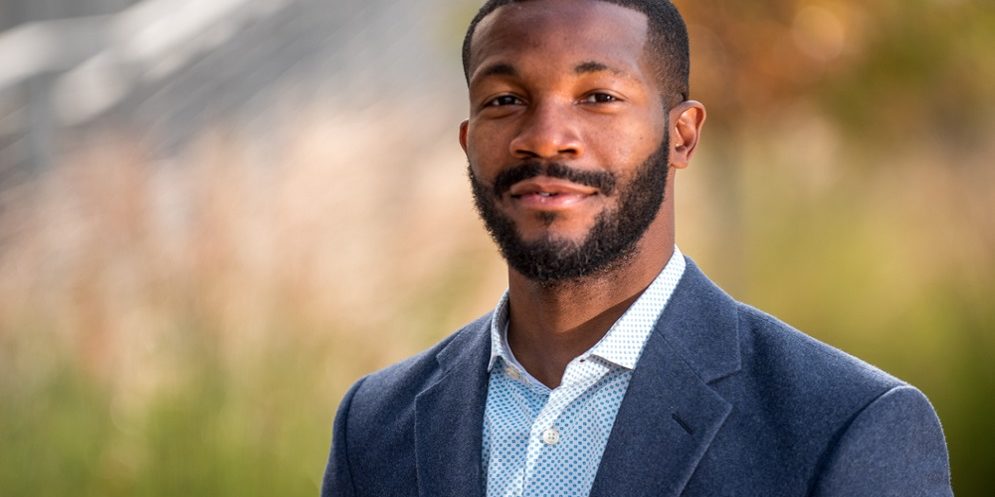
Birmingham, Ala. will soon be the new home of a new, yet-to-be-named professional football team franchise. The Alliance of American Football (AAF) announced the decision on Monday to include Birmingham as part of a new eight-team league, which will start a twelve-week season starting in February of 2019, culminating in a championship game in April of 2019. Birmingham Mayor Randall Woodfin shared his excitement over the announcement via Facebook by sharing a video of Mike Vick welcoming the city to the alliance. “Welcome to Birmingham AAF! Excited to hit the field with you! #AllianceBirmingham.,” Woodfin posted. Other teams in the league include: Atlanta, Memphis, Orlando, Phoenix, San Diego and Salt Lake City. The Birmingham team will play its first two seasons at legion field, then move to the new stadium planned for the Birmingham-Jefferson Convention Complex (BJCC), according to the Birmingham Business Journal. A head coach has not been selected for the team, but the league is expected to make further announcements later this week regarding all the details of the team. With a pro-football team coming to the city, the controversial decision made by the Birmingham City Council in March to invest $90 million over the next 30 years to renovate the BJCC and construct of a new downtown stadium, doesn’t look so terrible. However, Birmingham has experienced problems in the past, of getting professional football leagues to hold. The city has been home to several leagues over the past 20 years, and while many developed a notable fan base in the area, the teams “ultimately couldn’t overcome financial or other challenges that come with trying to compete in the shadow of the NFL and college football,” according to the Birmingham Business Journal.
Who is Allen Treadaway, the new Birmingham Assistant Chief of Police?

On Monday, Birmingham Mayor Randall Woodfin announced LAPD-veteran Patrick Smith is the city’s new Chief of Police. He also announced State Rep. Allen Treadaway would be the new Assistant Chief of Police. In the past 24 hours there’s been a lot of talk about who Smith is, but not so much about Treadaway. Which is why Alabama Today wanted to take a closer look at the new Assistant Chief of Police. Background in law enforcement Treadaway attended Jefferson State Community College before attending the Birmingham Police Academy where he received his Peace Officers Standards and Training Commission. Since graduating, he’s served on the Birmingham Police Department since 1989. He is a past president of the Birmingham Fraternal Order of Police Lodge 1. In 1992, he was recognized as the Officer of the Year by the City of Birmingham and was named the Most Outstanding Member of the Year by the Alabama State Fraternal Order of Police for 2004-2005. Until his new appointment, Treadaway served a Birmingham Police Captain, in command of the East Precinct, which includes the Birmingham Shuttlesworth International Airport. There, he worked with approximately 170 officers. Prior to that, he served as Captain of the Crimes against Poverty unit, Lieutenant of the Burglary and Auto Theft units and Sergeant of the Auto Theft unit and South Precinct. Politics Treadaway was elected to the Alabama House of Representatives in November 2006 to represent House District 51. He won his party’s nomination in the Republican primary in a runoff against Vicki Self Bailey and was unopposed in the November general elections. He’s maintained the position eve since. He often uses his first-hand experience in law enforcement to sponsor and co-sponsor legislation involving law enforcement issues. House Speaker Mac McCutcheon named Treadaway chairman of the State House Committee on Public Safety and Homeland Security in Dec. 2016. Personal life He is a past director of Toys for Tots and a current Board member of the Birmingham Retirement and Relief System. Treadaway and his wife Susan live in Morris, Ala. with their four children: Erin, Tyler, Ally and Cody. His family made headlines earlier this year when they tragically lost their fifth child, a daughter, Kelsey Marie Treadaway — 31, the volleyball coach at Mortimer Jordan High School — in a car accident. They are members of Enon Baptist Church.
Personnel note: Steve Miley named associate director of NASA’s Marshall Space Flight Center
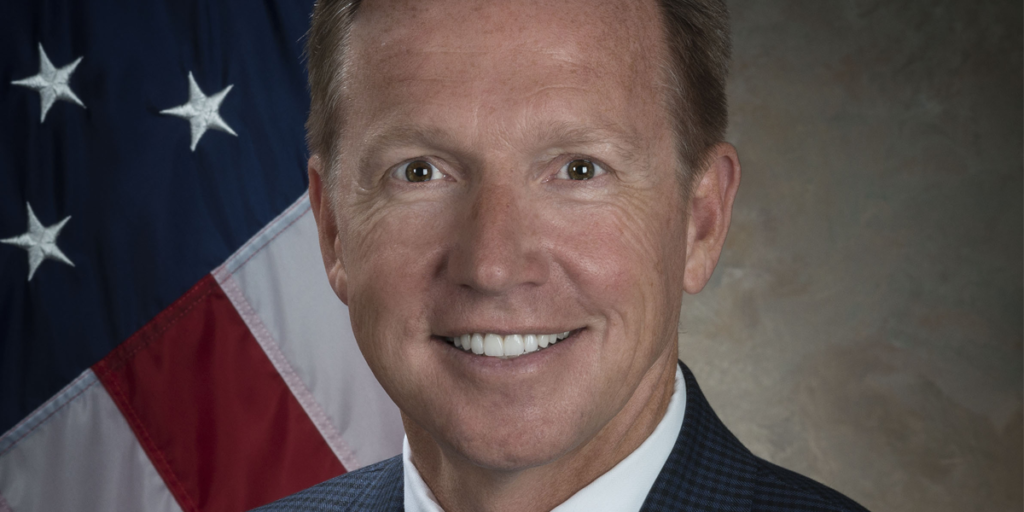
NASA has named Steve Miley the associate director of their Marshall Space Flight Center in Huntsville, Ala. Marshall, one of NASA’s largest field installations, has almost 6,000 civil service and contract personnel, an annual budget of approximately $2.5 billion, 4.5 million square feet of infrastructure and a broad spectrum of human spaceflight, science and technology development. As associate director, Miley will manage and lead development of business operations, guide daily business decisions and oversee Marshall’s operational policy and processes. In addition, he will serve as a senior adviser in advancing the direction of the center’s future. “With three decades of government acquisition and management experience, Steve is well prepared for his new position on the center’s senior leadership team,” said Marshall Center Director Todd May. “The leadership skills he has displayed while working with NASA Headquarters, other NASA field centers, the U.S. Air Force, government agencies and partners has been, and will continue to be, invaluable to Marshall and the nation’s space exploration efforts.” Professional background The Dayton, Ohio, native most recently served as director of Marshall’s Office of Procurement. Named to the position in December 2015, he managed the organization responsible for all aspects of the contracting and procurement processes at Marshall, NASA’s Michoud Assembly Facility in New Orleans and associated contractor facilities. In 2014, Miley began a second stint as the associate director for operations in Marshall’s Engineering Directorate. He also held that post from 2007 to 2011. From 2011 to 2014, he was at Wright-Patterson Air Force Base near Dayton, Ohio, as director of contracting for the U.S. Air Force Life Cycle Management Center, the organization responsible for total lifecycle management of Air Force weapon systems. He led 13 acquisition directorates at three military sites, overseeing more than 2,000 contracting professionals, and guided more than $31 billion in annual obligations for 10 program offices with an active contract value of more than $196 billion. In 2006, Miley was appointed to the Senior Executive Service at NASA Headquarters in Washington, where he supervised the agency’s key technical capability portfolios as director of the Strategic Capabilities Assets Division. The Senior Executive Service is the personnel system that covers most of the top managerial, supervisory and policy positions in the executive branch of the federal government. Miley began his career in 1988 as a contract negotiator at Wright-Patterson Air Force Base, supporting key military aviation and missile programs. After graduating from the Air Force contracting intern program in 1992, he transferred to NASA Headquarters in Washington as a contracting officer and procurement analyst. He was a contract negotiator for the NASA-Russian Space Agency contract for American support and use of Space Station Mir. In 1995, he transferred to NASA’s Johnson Space Center in Houston, as a contracting officer and business team leader in the International Space Station Program Office. He returned to NASA Headquarters from 1998 to 2007 to take on a variety of positions, including manager of the Sponsored Research Business Office and acting assistant associate administrator for infrastructure management in NASA’s Office of Space Flight. He earned a master’s degree from the Southern Baptist Theological Seminary in Louisville, Ky., in 1986, a master’s degree in business administration from Wright State University in Dayton, Ohio, in 1992, and a bachelor’s degree from Campbellsville University in Campbellsville, Ky., in 1983. He also received the Professional Designation in Contract Management from the Air Force Institute of Technology at Wright-Patterson Air Force Base, and the Certified Professional Contracts Manager designation from the National Contract Management Association, headquartered in Ashburn, Va., in 1992. A 21-year Air Force reserve officer, Miley received his commission through the Air Force ROTC program at the University of Louisville in Louisville, Ky. He retired as a lieutenant colonel in 2008. He and his wife Dana live in Huntsville.
Fairhope police chief Joseph Petties retires, then un-retires at City Council meeting

Fairhope Police Chief Joseph Petties announced his retirement at Monday’s City Council meeting, only to rescind his retirement minutes later. Petties received a standing ovation from the council and meeting attendees before his announcement. Petties followed the applaud by making a statement on why he was retiring; saying Mayor Karin Wilson bullied him and made false accusations against him. “There are times when you don’t always see eye to eye with your supervisor,” Petties told the council, WKRG reported. “But the treatment that I’ve been subjected to as grown to the point that it can’t be ignored.” According to WKRG, he became so emotional during the reading of his statement, his wife had to finish reading it for him. Then, in an unanticipated turn of events, council members emphatically tore up Petties’s resignation letter, refusing to accept his resignation. They said they would look into whether or not the council could pursue efforts to pry police supervisory power from Wilson. Wilson denied Petties allegations, saying they have a great relationship, “It’s not true, at all,” Wilson told WKRG. “Absolutely not true. The Chief is a great person. We have gotten along fine. Turning this into a political thing about me is unfortunate.” But Wilson has a history of being at odds with both Petties and other members of the City Council. In February, she announced the hiring of Tony Goubil, the city’s new police sergeant and public safety director at a council meeting without first informing the council or Petties, both of whom were shocked to receive the news as Goubil was apparently sent to investigate a complaint filed against Wilson by the Alabama Ethics Commission sent, according to The Courier. Petties then sent the mayor an e-mail expressing his apprehensions and thoughts about Goubil, and the uproar it caused within his department. Wilson later retracted the hire at the March 20 City Council meeting, saying although she believed the city did need a public safety director, and Goubil was a great choice for the position, she understood other people wanted input in the decision. One of those people, was Petties. Wilson again came under fire in May with Fairhope’s Financial Advisory Committee (FAC), after sending an e-mail to committee chairman Chuck Zunk telling him the city budget was ultimately her responsibility, and that she would let the committee know if and when she needed their input. For now, Wilson remains Fairhope’s mayor and Petties remains police chief. When asked to comment on the mayor by WKRG, Petties replied “I still work for her. So I don’t want to talk down about her.” WKRG was live on Facebook during the entire council meeting, which you can watch below:
Secretary of State John Merrill projects 25 to 30 percent voter turnout on Tuesday

Alabama Secretary of State John Merrill is projecting a voter turnout of 25 to 30 pecent in the primary election on Tuesday. In December, Merrill had also estimated 25 percent of voters would turnout for the highly contested special election between Doug Jones and Roy Moore; but more than 1.3 million voters participated, 40 percent. Nevertheless, the last midterm primary election, in 2014, saw only 22 percent of voters turnout. There are nearly 3.4 million registered voters in Alabama.
Conservative icon David Koch leaving business, politics

Billionaire conservative icon David Koch is stepping down from the Koch brothers’ network of business and political activities. The 78-year-old New York resident is suffering from deteriorating health, according to a letter that older brother Charles Koch sent to company officials Tuesday morning. Charles Koch wrote that he is “deeply saddened” by his brother’s retirement. “David has always been a fighter and is dealing with this challenge in the same way,” he wrote. David Koch is leaving his roles as executive vice president and board member for Koch Industries and a subsidiary, Koch Chemical Technology group, where he served as chairman and chief executive officer. Koch is also stepping down as chairman of the board for the Americans For Prosperity Foundation, the charity related to Koch brothers’ primary political organization. Charles Koch had assumed a more visible leadership role in the brothers’ affairs in recent years. He will continue to serve as the CEO of Koch Industries and the unofficial face of the network’s political efforts. Democrats have demonized the Koch brothers for their outsized influence in conservative politics over the last decade. Former Senate Majority Leader Harry Reid regularly attacked Republicans for what he called a “Koch addiction.” Yet the Kochs have clashed with the Trump administration at times. Citing concerns about Trump’s style and substance, the network refused to endorse either presidential candidate in the 2016 election. And while they have praised Trump’s policies on taxes, de-regulation and health care, they have aggressively attacked the Republican administration’s trade policies. On Monday, the Koch network announced a multi-million-dollar campaign to oppose Trump’s tariffs and highlight the benefit of free trade. Using the money they made from their Kansas-based family business empire, the Koch brothers have created what is likely the nation’s most powerful political organization with short- and long-term goals. Their network has promised to spend $400 million to shape the 2018 midterm elections. They have also devoted significant time and resources to strengthening conservative influence on college campuses, in the Hispanic community and in the nonprofit sector. David Koch, who served as the Libertarian Party’s vice presidential candidate in 1980, had begun focus more on philanthropy in recent years. The Manhattan resident donated $150 million to New York City’s Memorial Sloan Kettering Cancer Center in 2015, the largest gift in the organization’s history. He has also given $185 million in total donations to the Massachusetts Institute of Technology, his alma mater. In an April interview with the Washington Examiner, Charles Koch described his younger brother this way: “David is much more political than I am.” Charles continued: “David is a much better engineer than I am and is much more into the arts and social life. Obviously he’s got to be or he wouldn’t live in Manhattan. And David is much more into elective politics than I am.” In Tuesday’s letter, Charles Koch said his brother’s “guidance and loyalty, especially in our most troubled times, has been unwavering.” “David has never wanted anything for himself that he hasn’t earned, as his sole desire has always been to contribute,” he wrote. Republished with the permission of the Associated Press.


